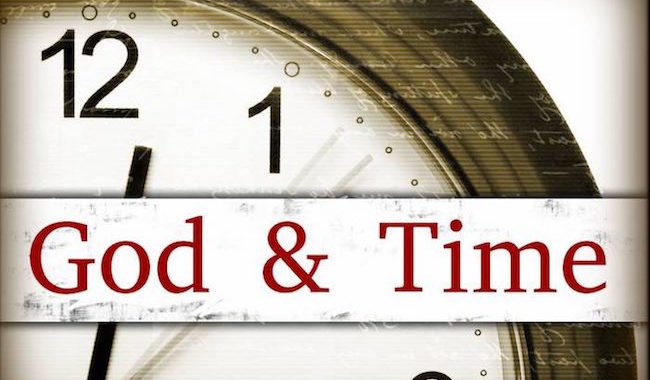Time is a precious gift that God gives to each one of us. One of the keys in living a successful life is to learn how to use our time in the best way possible. Sometimes in life, however, time is taken from us and we have no control over our day to day activities. When our time is taken away from us, in one way or another, we live in a constant state of expectation that there will somehow be a change and that we will be given back the opportunity to once again use time as we choose.
I was reminded afresh of the preciousness of time this week as I’m visiting the country of Turkey. Currently in this country there is an American pastor named Andrew who is serving time in prison for a crime that is baseless. Andrew was detained in October by the police and was sentenced in December for the charges brought against him. Andrew is currently in prison and is being denied the opportunity to use his time as he wishes. Please take a few minutes to read more about Andrew’s situation and to pray for him and his family, click this link: Andrew’s Story Christianity Today: The following link provides the most recent news about Andrew: Andrew’s Update
Andrew’s time has been taken from him as he sits in prison and he has no idea when he will be released. He can only hope and pray that God will make a way for him to be set free from this prison. To have one’s days, weeks, and months taken from a person without any idea of when he or she will be set free is one of the most challenging aspects of life that we face on this earth.
Having a person’s time taken from them can take many different forms: sickness, a repressive regime, a war-torn country, a literal prison, or any other confinement that takes away the control of our time. In situations like this we often ask ourselves; Where is God? Why would God allow this to happen? When will I or we be set free from this confinement? There are no easy answers to these questions, however, this week’s Torah Portion gives us a fresh understanding of seeing our situations from God’s perspective.
“מקץ” – “Miketz”
This week’s Torah Portion is called “מקץ” – “Miketz,” which means “at the end of” and it is often used to signify the fulfillment of time. “Miketz” can also indicate a change that is about to take place. The word “miketz” is used after the flood when Noah opened a window of the ark after the ark had settled on the mountains of Ararat (Gen. 8:6). We also see the word “miketz” used in the account of the children of Israel coming out of the land of Egypt after 430 years (Ex. 12:41). In both of these examples a significant event had occurred and something new was about to start. The word “miketz” is used in a similar way in this week’s reading.
This week’s Torah Portion continues the story of Joseph and his brothers. Joseph had been sold into slavery and taken to Egypt. While he was in Egypt, he rose to a high position in the house of one of Pharaoh’s officials but was then falsely accused of molesting his master’s wife and as a result he was then thrown into prison. It is in this context that we begin to read this week’s reading with the following opening verse: “Now it happened at the end of two full years that Pharaoh had a dream, and behold, he was standing by the Nile.” (Gen. 41:1)
The phrase in the above verse “at the end” is the Hebrew word “miketz” and it is used in reference to the events that just happened in the previous chapter. Joseph had correctly interpreted the dreams of two of Pharaoh’s servants who were also in prison and they were then both released from prison; one to his death and the other was restored to Pharaoh’s service. Joseph had asked the cup bearer who returned to Pharaoh’s service to remember him and to help get him out of prison, but the cupbearer forgot Joseph. Two full years had passed since that event.

Joseph’s “Miketz” Moment
We don’t know exactly how long Joseph was in prison. He could have been in prison for three years, five years, ten years, or possibly even twelve years. The only time indicators we have in the Bible is that Joseph was about 17 years old when he was sold into slavery by his brothers (Gen. 37:2) and that Joseph was now 30 years old (Gen. 41:46). Joseph was 30 years old when we read that Pharaoh had a dream “at the end of two full years.”
Joseph had been living as a slave in Egypt for 13 long years and was in prison for an unidentified amount of years. When we arrive at the beginning of this week’s reading, however, we are at a major turning point in Joseph’s life which is signified by the word “miketz.” Joseph’s time as a slave and a prisoner were about to come to an end and Joseph would begin a whole new life.
It is important to remember that Joseph had no idea how long his imprisonment would continue. He was falsely accused of an act on the wife of one of Pharaoh’s officials and he could have been left in prison to the end of his days, however, God had a plan to turn all of Joseph’s suffering for good. God gave Pharaoh a dream and God prepared one man, Joseph, to be able to interpret Pharaoh’s dream.
Pharaoh’s Dreams
Pharaoh actually had two dreams in one night. His first dream was of seven good and fat cows and seven lean and skinny cows. The seven lean and skinny cows ate the seven good and fat cows. His second dream was of seven good and plump stalks of grain along with seven thin and withered stalks of grain. The seven thin and withered stalks of grain swallowed up the seven good and plump stalks of grain.
After Pharaoh awoke from his dreams, he asked his diviners and wisemen to interpret the dreams for him but no one could do it. This is when the cupbearer to Pharaoh remembered Joseph and mentioned his ability to interpret dreams to Pharaoh. Pharaoh then immediately had Jospeh brought from the prison to come before him to see if what was said about him was true.
The Interpretation
Joseph came before Pharaoh and Pharaoh explained to Joseph the dreams that he saw. Joseph then gave Pharaoh the following interpretation to his dreams:
It is as I have spoken to Pharaoh: God has shown to Pharaoh what He is about to do. Behold, seven years of great abundance are coming in all the land of Egypt; and after them seven years of famine will come, and all the abundance will be forgotten in the land of Egypt, and the famine will ravage the land. – Genesis 41:28-30
Joseph explained that God had shown Pharaoh what He is about to do over the course of the next fourteen years: there would be seven years of abundance followed by seven years of famine.
The Significance of Seven
Joseph used the following phrase in the above verses to interpret Pharaoh’s dreams: “Behold, seven years of great abundance are coming in all the land of Egypt.” This phrase in Hebrew is as follows: “הנה שבע שנים באות שבע גדול בכל ארץ מצרים” – “hineh she’vah shanim baot, sa’vah gadol be’kol eretz mitzraim.” The Hebrew word for “seven” is “שבע” – “she’vah” and the Hebrew word for “abundance” is “שבע” – “sa’vah.” The Hebrew letters are identical in both words but the pronunciation is different.
I believe Joseph’s use of these particular inspired words tell us more than information about what is going to happen in the future. The use of these two Hebrew words in the same context reveal prophetic fulfillment for Egypt, for the known world at that time, and for Joseph himself.
The Number of Fulfillment
The number seven is consistently used in the Bible to mean completion. We see this from the very beginning in the creation week when God completed His work and rested on the seventh day (Gen. 2:2). When God gave Pharaoh these dreams with the consistency of the number seven, Joseph understood that God was giving Pharaoh a clear word about something that would be fulfilled: seven years of abundance followed by seven years of famine (a lack of fullness). A complete cycle of fourteen years would be fulfilled.
Ironically, the prophetic word about to be fulfilled in the land of Egypt would also bring fulfillment in Joseph’s own life. The dreams that he had received thirteen years earlier would finally come to fruition (Gen. 37:1-11). Now in the fourteenth year since Joseph was sold into slavery, Joseph would be elevated to a place where the whole world would bow down to him, including his own family members. Every Word of God was fulfilled in the lives of Pharaoh and Joseph.

Life According to God’s Timetable
The life of Joseph reminds us that God’s word will always be fulfilled in God’s perfect timing. Individuals, rulers, and nations may falsely accuse people and do things to people that are unjust and unwarranted, however, we are reminded through this week’s Torah Portion to wait on God for that “miketz” moment when He will bring all things to completion.
We all have things in life that we are waiting for. We all have hopes and dreams and even prophetic words from God that we are waiting to see the fulfillment of in this life. Our circumstances may seem impossible but we must always know and believe that we serve the Sovereign God of the universe who is not bound by time and is able to do the impossible. We need to live life in accordance to God’s timetable.
Shabbat Shalom,
If you enjoyed reading this article, share it today with friends! We also invite you to sign up for our weekly Torah Portion commentary on the sidebar to the right.
Help keep our weekly commentaries free and available to all. Click here to donate today:
Torah Portion: Gen. 41:1 – Gen. 44:17
Haftara: Zechariah 2:10 – Zechariah 4:7
Return to Torah Portion Homepage
Copyright Jewels of Judaism. All rights reserved 2016


